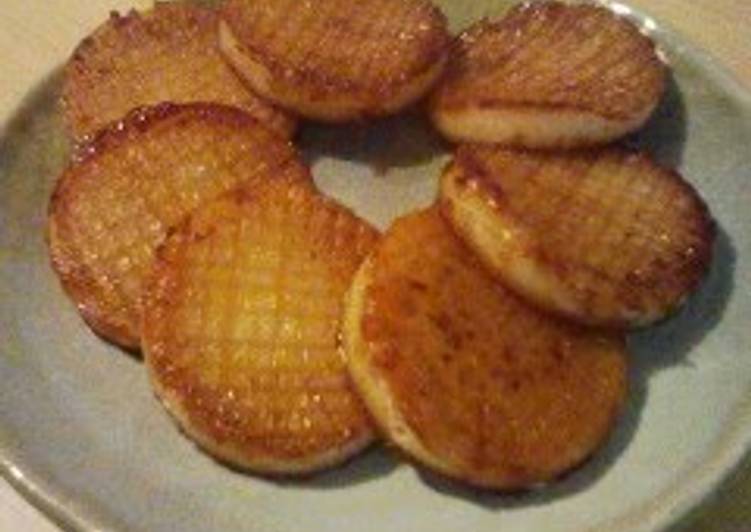Macrobiotic Daikon Radish Steaks. Macrobiotic Daikon Radish Steaks I wanted to create a speedy and easy main dish. You can eat all of it! Daikon radishes are a staple of macrobiotic diets and are also good for weight loss so I'm super excited about them.
 When the vinegar evaporates off, add the soy sauce and coat evenly.
Daikon radishes are a staple of macrobiotic diets and are also good for weight loss so I'm super excited about them.
I found a great article about how to select and prepare daikon.
You can have Macrobiotic Daikon Radish Steaks using 3 ingredients and 3 steps. Here is how you cook it.
When the vinegar evaporates off, add the soy sauce and coat evenly.
Daikon radishes are a staple of macrobiotic diets and are also good for weight loss so I'm super excited about them.
I found a great article about how to select and prepare daikon.
You can have Macrobiotic Daikon Radish Steaks using 3 ingredients and 3 steps. Here is how you cook it.
Ingredients of Macrobiotic Daikon Radish Steaks
- It's 10 of cm Daikon radish.
- You need 1/2 tbsp of Rice vinegar.
- Prepare 2 tbsp of Soy sauce.
It can be used as a condiment and often added to sauces. Heat the oil in a pan over low-medium heat and put in the daikon radish and sauté on the both sides until lightly browned. Lower the heat, add mushroom and the * ingredients into the same pan. In a big frying pan that has a lid, heat the oil on medium and fry both sides of the daikon slices until it has a nice brown color.
Macrobiotic Daikon Radish Steaks instructions
- Chop the daikon into 1.5 cm thick rounds. Score both sides in a lattice pattern. Sprinkle with salt (not listed), then let sit..
- Heat the frying pan, pour in oil (not listed), then place the daikon in the pan. Pan fry both sides until crispy brown, cover with a lid, then steam for about 10-15 minutes..
- When the daikon become tender, swirl in the rice vinegar. When the vinegar evaporates off, add the soy sauce and coat evenly. When the daikon starts to give off a roasted fragrance, they're ready to serve!.
It will take a couple minute for each side. When both sides are browned, pour in the sauce mix in the frying pan and put on the lid. To prolong the shelf life, separate the leaves and the root as the leaves absorb moistures from the root. Wrap daikon in plastic wrap or newspaper, then put in a plastic bag, and keep in the refrigerator. Daikon radishes are a staple in Asian cuisine, often pickled or served in a stir-fry, but you can also eat them raw for a crunchy bite.